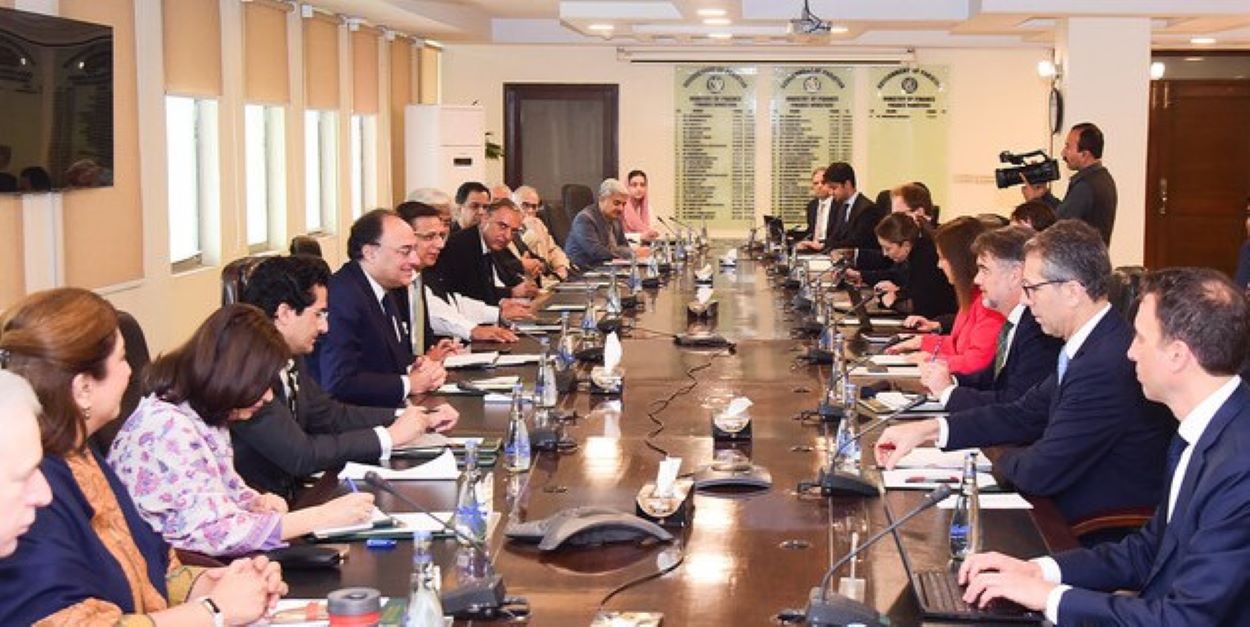Due to initial discrepancies, the International Monetary Fund (IMF) may revert to reviewing the $7 billion bailout package every three months. Pakistani authorities, however, confirm that they have not yet made a final decision.
The potential shift to quarterly reviews arose during an unscheduled IMF mission visit to Islamabad, which was intended to keep the program on track. The Finance Ministry is also trying to ensure provincial compliance.
Sources mentioned that quarterly reviews would enable continuous monitoring of the roughly 40 conditions stipulated in the $7 billion deal. Despite this, Pakistani negotiators said that review frequency discussions are ongoing.
Six weeks prior, the IMF board greenlit the $7 billion agreement, disbursing $1.1 billion upfront. They planned to distribute the remaining $6 billion in six equal parts depending on successful semi-annual reviews.
The first review was set for March next year, but the IMF visit occurred sooner due to fiscal, taxation, and financing challenges. The previous Extended Fund Facility (EEF) from 2019-2022 followed a quarterly review pattern.
Implementing quarterly reviews would allow the IMF to monitor government compliance more effectively. This arrangement would also strengthen the Ministry of Finance’s ability to manage the 40 conditions.
The IMF mission started with briefings from various ministries on Monday. Mission Chief Nathan Porter then met with Finance Minister Muhammad Aurangzeb and State Bank of Pakistan (SBP) Governor Jameel Ahmad on Tuesday.
Mahir Bicini, Pakistan’s new IMF Resident Representative, attended the first meeting. The finance minister hosted a luncheon for the outgoing representative, Esther Perez, but the ministry did not issue a statement afterwards.
The IMF discussed the Federal Board of Revenue’s (FBR) performance, power sector statistics reliability, and macroeconomic targets. It also reviewed the implementation of the National Fiscal Pact.
The FBR outlined its performance in the first quarter, noting a Rs90 billion shortfall from faulty macroeconomic predictions.
It attributed missed monthly targets to slower import growth, declining inflation, and some ineffective policy measures.
The FBR emphasized its achievement of the Rs10 billion tax collection target from traders, primarily from higher collections from non-filer retailers. However, it missed the Rs10 billion target set against the Tajir Dost scheme by 99.99%.
The FBR initially plans to focus on non-filer wholesalers to ensure proper tax collection.
Finance Minister Aurangzeb has eliminated the non-filer category.
Despite revenue shortfalls, the FBR argued it could still meet the 11.5% tax-to-GDP target due to the shrinking economy. However, the collection would be far below the Rs12.97 trillion target without a mini-budget.
The FBR’s tax target was based on an anticipated 15% nominal GDP growth—3 % GDP growth and 12% inflation. With the nominal size likely to decrease below 12%, the economy’s overall size would contract compared to projections.
The IMF has not yet indicated whether it will accept the FBR’s explanation or insist on the promised mini-budget.
The IMF raised concerns about low recoveries from the real estate sector despite higher withholding tax rates on property transactions.
It also reviewed the National Fiscal Pact and acknowledged the challenges in its implementation. The four provincial governments have not yet passed the required agricultural income tax laws to raise the tax rate to 45%. Due to Punjab’s failure, they have not met the overall cash surplus target.
Sources suggest the IMF might provide technical assistance to fully implement the National Fiscal Pact, which aims to transfer expenditure responsibilities to the provinces as per the constitution.






